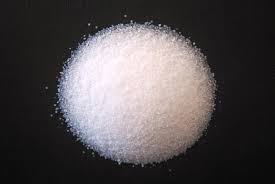
ธ.ค. . 12, 2024 10:42 Back to list
seaweed fertilizer npk
The Benefits of Seaweed Fertilizer An NPK Perspective
In the world of sustainable agriculture, the quest for organic and environmentally friendly fertilizers has become increasingly important. Among various options available, seaweed fertilizers have gained prominence due to their natural origins and multitude of benefits for plant growth. When discussing fertilizers, one often encounters the term NPK, which signifies the three primary nutrients essential for plant health Nitrogen (N), Phosphorus (P), and Potassium (K). This article delves into how seaweed fertilizer fits into the NPK framework and why it can be a game-changer for modern agriculture.
Understanding NPK
Before exploring seaweed fertilizer, it's crucial to understand the role of NPK in plant health. Nitrogen is vital for leaf growth, promoting the lush green foliage that is essential for photosynthesis. Phosphorus contributes to root development and flowering, ensuring that plants have a solid foundation for growth and the ability to produce seeds and fruit. Potassium, on the other hand, is crucial for overall plant health, helping in water regulation, disease resistance, and the synthesis of proteins and starches.
Seaweed as a Natural Fertilizer
Seaweed, particularly varieties like kelp, has been used as a natural fertilizer for centuries. Its nutrient profile is impressive, containing not just NPK but also a host of micronutrients, vitamins, and phytohormones that are beneficial for plant growth. When seaweed is processed into fertilizer, it provides plants with a balanced ratio of NPK along with additional assets that synthetic fertilizers often lack.
1. Nitrogen Content in Seaweed Fertilizer
While seaweed is not typically high in nitrogen compared to traditional fertilizers, it does provide a slow-release form of this crucial nutrient. This slow-release mechanism ensures that nitrogen is available to the plants over an extended period, reducing the risk of leaching into the groundwater and promoting efficient usage. Moreover, the amino acids present in seaweed aid in plant metabolism, further enhancing nitrogen uptake.
2. Phosphorus in Seaweed
Seaweed fertilizers can contain varying levels of phosphorus, depending on the type of seaweed used. The phosphorus in seaweed is often in a form that is readily available to plants, promoting strong root development and flowering. This is particularly beneficial for crops that demand high phosphorus availability during specific growth stages.
seaweed fertilizer npk

Seaweed is rich in potassium, which plays a significant role in plant health. Potassium derived from seaweed contributes to improved drought resistance, enhanced nutrient uptake, and overall better yields. Furthermore, the potassium from seaweed can help in the synthesis of essential oils in fruits and vegetables, enriching their flavor and nutritional profile.
Other Advantages of Seaweed Fertilizer
Beyond its NPK content, seaweed fertilizer offers several additional benefits that make it an attractive option for sustainable farming
- Micronutrients Seaweed is a treasure trove of micronutrients like iron, zinc, and magnesium, which are essential for various biochemical processes in plants.
- Soil Health Incorporating seaweed into the soil improves its structure and microbial activity, enhancing overall soil health and fertility.
- Stress Tolerance The natural hormones found in seaweed, like auxins and cytokinins, help plants manage environmental stresses, such as drought and salinity, which are increasingly common due to climate change.
- Eco-Friendly As a renewable resource, seaweed fertilizers reduce dependence on synthetic chemicals, promoting environmental sustainability and reducing the carbon footprint associated with traditional fertilizer production.
Conclusion
In summary, seaweed fertilizers present an excellent alternative to conventional fertilizers, especially when viewed through the lens of NPK nutrients. Their balanced nutrient profile, coupled with numerous additional benefits, makes them particularly valuable for sustainable agricultural practices. As farmers worldwide seek to adopt more ecologically friendly farming methods, seaweed fertilizers could play a pivotal role in improving soil health, enhancing crop yield, and ensuring food security for the future. By harnessing the power of seaweed, we can cultivate a more sustainable agricultural system that respects the environment and promotes plant health.
-
Premium Organic Manure Compost for Eco Gardens
NewsAug.01,2025
-
Organic 10-10-10 Fertilizer | Balanced Plant Nutrients
NewsJul.31,2025
-
Premium Amino Acid Fertilizer | Rapid Plant Growth Booster
NewsJul.31,2025
-
10 10 10 Fertilizer Organic—Balanced NPK for All Plants
NewsJul.30,2025
-
Premium 10 10 10 Fertilizer Organic for Balanced Plant Growth
NewsJul.29,2025
-
Premium 10 10 10 Fertilizer Organic for Balanced Plant Growth
NewsJul.29,2025
